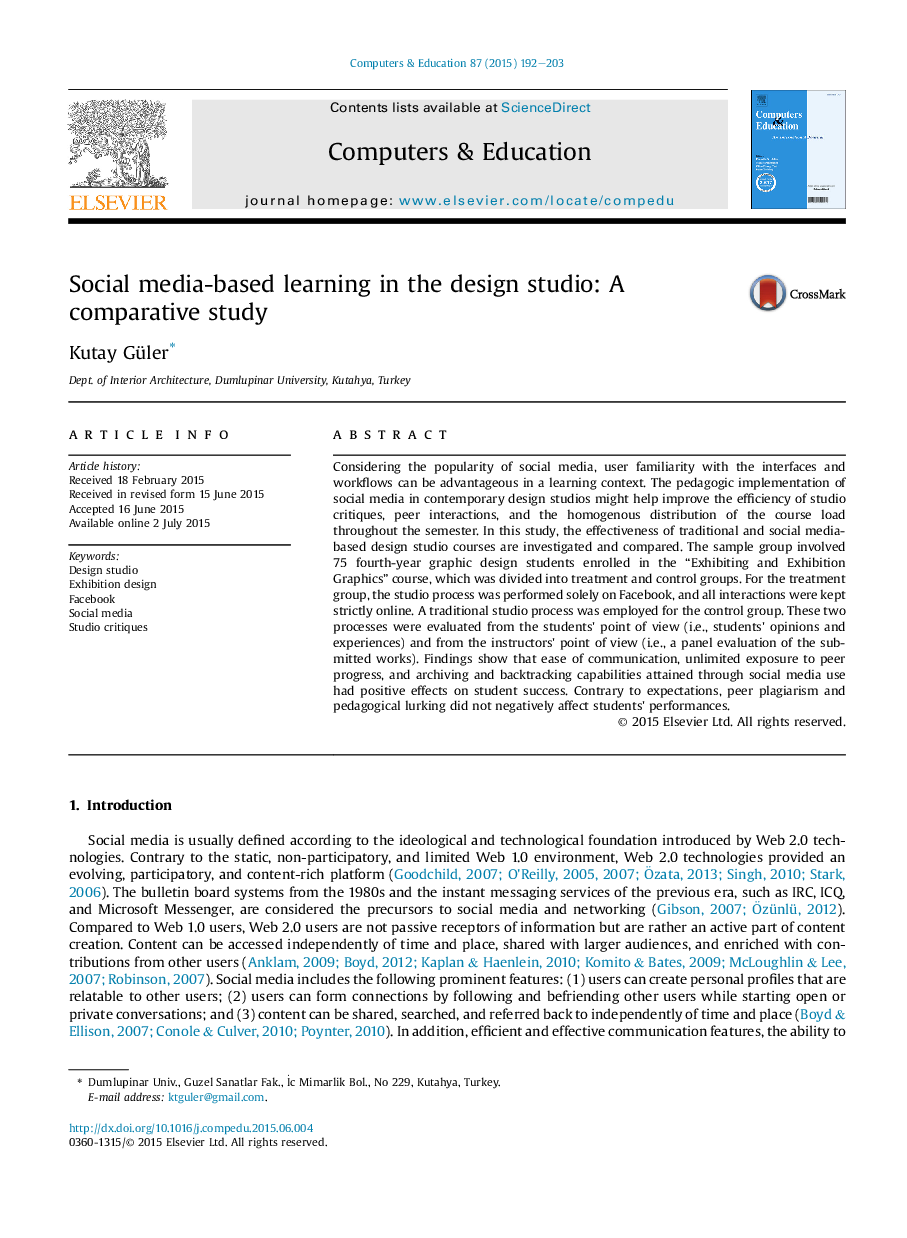| Article ID | Journal | Published Year | Pages | File Type |
|---|---|---|---|---|
| 6835038 | Computers & Education | 2015 | 12 Pages |
Abstract
Considering the popularity of social media, user familiarity with the interfaces and workflows can be advantageous in a learning context. The pedagogic implementation of social media in contemporary design studios might help improve the efficiency of studio critiques, peer interactions, and the homogenous distribution of the course load throughout the semester. In this study, the effectiveness of traditional and social media-based design studio courses are investigated and compared. The sample group involved 75 fourth-year graphic design students enrolled in the “Exhibiting and Exhibition Graphics” course, which was divided into treatment and control groups. For the treatment group, the studio process was performed solely on Facebook, and all interactions were kept strictly online. A traditional studio process was employed for the control group. These two processes were evaluated from the students' point of view (i.e., students' opinions and experiences) and from the instructors' point of view (i.e., a panel evaluation of the submitted works). Findings show that ease of communication, unlimited exposure to peer progress, and archiving and backtracking capabilities attained through social media use had positive effects on student success. Contrary to expectations, peer plagiarism and pedagogical lurking did not negatively affect students' performances.
Keywords
Related Topics
Social Sciences and Humanities
Social Sciences
Education
Authors
Kutay Güler,
